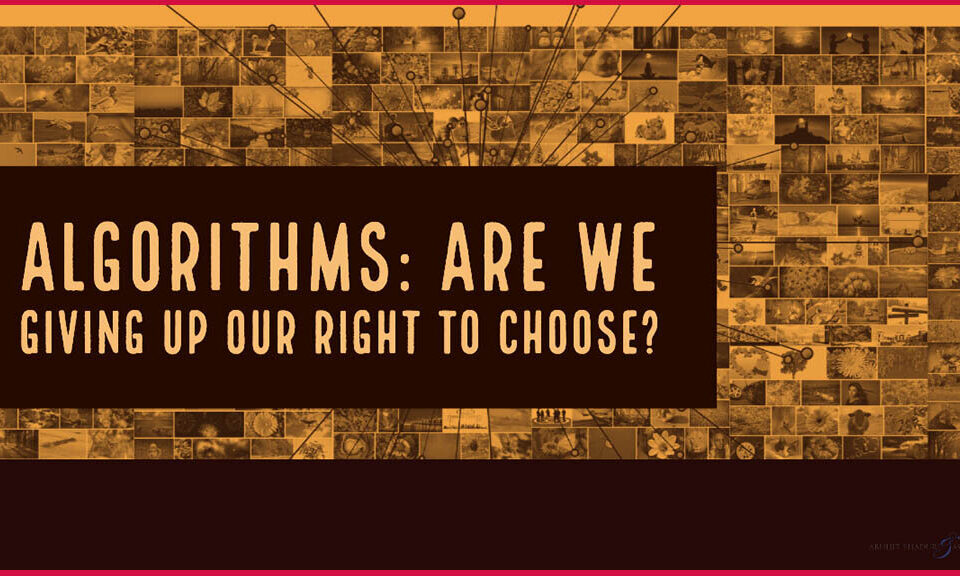The more data we create, the more important it is to bring in human judgment. Pulitzer prize winning journalist and columnist for Forbes, George Anders new book “You Can Do Anything” tells you that this may be era of the people with a Liberal Arts education. Technology is sterile unless we can make the human dimension work.
Technology has blurred the line between what is possible online and in the physical workspace. It is making online work similar to local work, with added speed, cost, and quality advantages. It is possible to be location-agnostic. Work can be sliced and diced like a pizza and shipped to the expert. You may be competing with five year olds who are millionaires. There are new kinds of jobs coming up which no one can learn in a school or college.
What would happen if a tobacco company or alcohol maker or drug dealer were to buy the app to encourage addiction? The fear is not far-fetched. E-commerce companies are using algorithmic nudges to encourages shoppers to buy more than what they need or can afford. The UK government is using behavioural scientists to get people to pay their taxes in time. What is to stop a totalitarian government from using algorithms for something sinister?
The new world of work is still run with old laws. Uber, which started in 2009, now has more than 7,00,000 active drivers in the United States alone, which is nearly three times the number of taxi drivers and chauffeurs in the country in 2014. Gig workers have flexibility but no paid sick leave, no time off and certainly no pension. The government may need to legislate the labor platforms where there is an urgent need redefine labor laws. The laws must not stifle innovation but must certainly prevent exploitation. It is time for new rules.
The leaders cannot engage employees until they start levelling with them as equals. They have to stop looking at employees as fans who have gathered to watch the leader shake hands or make a brief appearance. The new media is all about two-way communication, conversations and deep engagement. They have no choice but to learn the new rules. That means rethinking the power equation between leaders and followers.
Affectiva has gathered more than a billion data points to learn how human emotions differ based on the device, the content and of course, the individual viewer. These data points are then analyzed based on inputs from psychologists and experts. The machine tries to identify emotions in real time. The human experts coach the machine and tweak its algorithm and help it improve. Why don't we teach humans with the same rigor.
Technology is becoming like electricity — it is invisible. Its presence does not draw attention any more, but it periodically strikes like lightning, leaving behind a trail of devastation. Unable to keep pace with fast fashion and the consumers’ preference to shop online, The Limited shut down 250 stores in 2017. 460 outlets of Sports Authority went out of business in 2016. PacSun, Aeropostale, and American Apparel filed for bankruptcy in 2016. Macy’s has just slashed 10,000 jobs and shut 68 stores. All sectors are tech sectors. All jobs are tech jobs.









